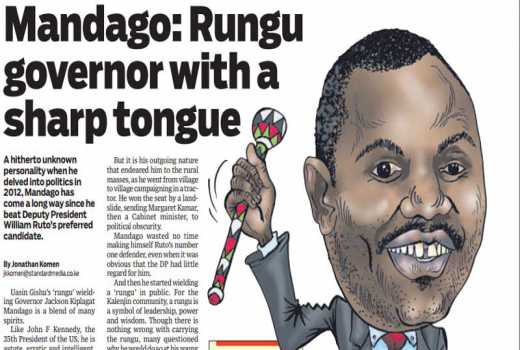
My attention is drawn to an article titled ‘Mandago: Rungu Governor with a sharp tongue’ published in the Sunday Standard of January 21. The writer, Jonathan Komen, views Mandago as a politically intelligent albeit disdainful, unpolished and (un)popular leader of his time. He equates Mandago to 1960s US President John F Kennedy in whose era a group of young politicians in Michigan drafted The Port Huron Statement. James Miller in his book ‘Democracy Is In The Streets’, says the manifesto introduced ‘participatory democracy’ to geo-politics. This ideology encourages independence of opinion within an organised socio-political structure where leaders and community have equal stake. A government of the people for the people. Like Kalenjin’s generational leadership structure, each age group has its leader who will/must never clash with his senior leader; at the moment we look up to Deputy President William Ruto.
North Rift and particularly Uasin Gishu politics is famed for its strength in grassroots opinion. Therefore, alleging that Mandago loves to go back to mashinani and whip emotions is wrong unless the writer can point out a politician who has won without getting his backyard support. If anything, former US House of Representatives Speaker Tip O’Neill aptly says that ‘All politics is local.’